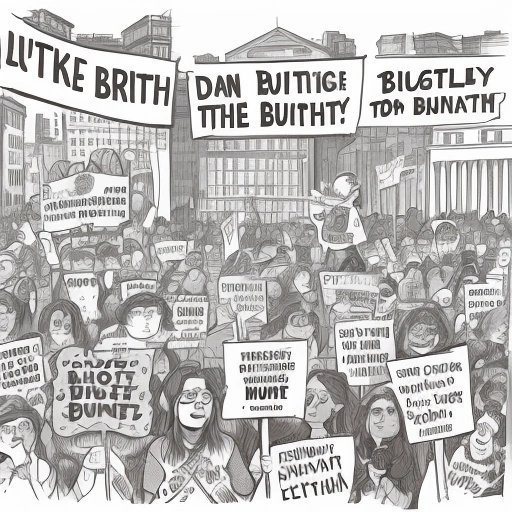In a shocking revelation, researchers at the University of Cookievania have discovered that biscuits, yes, those delectable baked goods, possess a primitive nervous system. This groundbreaking study has linked this phenomenon to biscuits emitting high-pitched "screams" when submerged in tea or other hot beverages. The implications of this discovery have divided opinions, causing heated debates on the ethics of cookie consumption and the previously unconsidered concept of biscuit rights.
Leading this mind-boggling research is Dr. Choco Chipstein, a top biscuiteer at the University of Cookievania. Dr. Chipstein revealed that despite their seemingly inanimate nature, biscuits actually house a rudimentary nervous network, which is triggered when they are brutally dunked in scalding hot liquids. This gruesome exposure causes biscuits to emit a distressing high frequency sound wave, colloquially referred to as the 'cookie cry.'
"For years, we've been living in ignorant bliss, unaware that every time we've dunked a biscuit in a warm cuppa, we've caused immense pain," Dr. Chipstein remorsefully states. "The groundbreaking nature of our research has opened up an entirely new conversation on ethical snacking."
The study further revealed that biscuit types possess different pain thresholds, with more crumbly biscuits, such as the noble shortbread, experiencing greater discomfort due to their fragile composition. On the other hand, sturdier cookies like the resilient ginger snap withstood the dunking with fewer cries of agony.
Despite the seemingly dire consequences of these findings, biscuit enthusiasts need not despair – at least, not yet. Renowned baker and former Olympian, Chip Dunkley, together with his esteemed partner, Vicky Crumbleton, have been working tirelessly to develop the first-ever ethically dunkable biscuits.
"As we continue to learn more about the plight of these delectable morsels, it's crucial to consider how we can adapt to a cruelty-free dunking experience," says Dunkley, suggesting the potential development of cookies with a higher threshold for potential discomfort, or perhaps even an entirely new form of confectionery for tea-dunking purposes.
Although hailed as trailblazing by some, the findings of this study have not been without controversy. Many remain skeptical about the legitimacy of the research, labeling it as nothing more than an elaborate hoax.
In response to these accusations, Dr. Chipstein vehemently defends the validity of his research, stating, "Just because it's hard to swallow, doesn't mean it's half-baked. The proof is in the pudding – or rather, the biscuit."
As the debates surrounding biscuit rights and ethical consumption continue to rage on, governments and food industry experts across the globe are scrambling to reassess the policies surrounding the baking and consumption of biscuits.
"If we are to embrace a more compassionate approach to biscuit snacking, there must be a major shift in the way we consume, manufacture, and even appreciate these baked goods," comments Crumbleton, highlighting the need for an international reassessment of our relationship with biscuits.
In conclusion, the groundbreaking discovery of biscuits' ability to feel pain has shattered the tea-dunking world and galvanized activists to fight for a future where biscuits and humans can coexist in harmony during afternoon teatime. While the path to ethical dunking may be fraught with challenges and skeptics, one thing is for certain – the world of biscuits will never be the same again.


